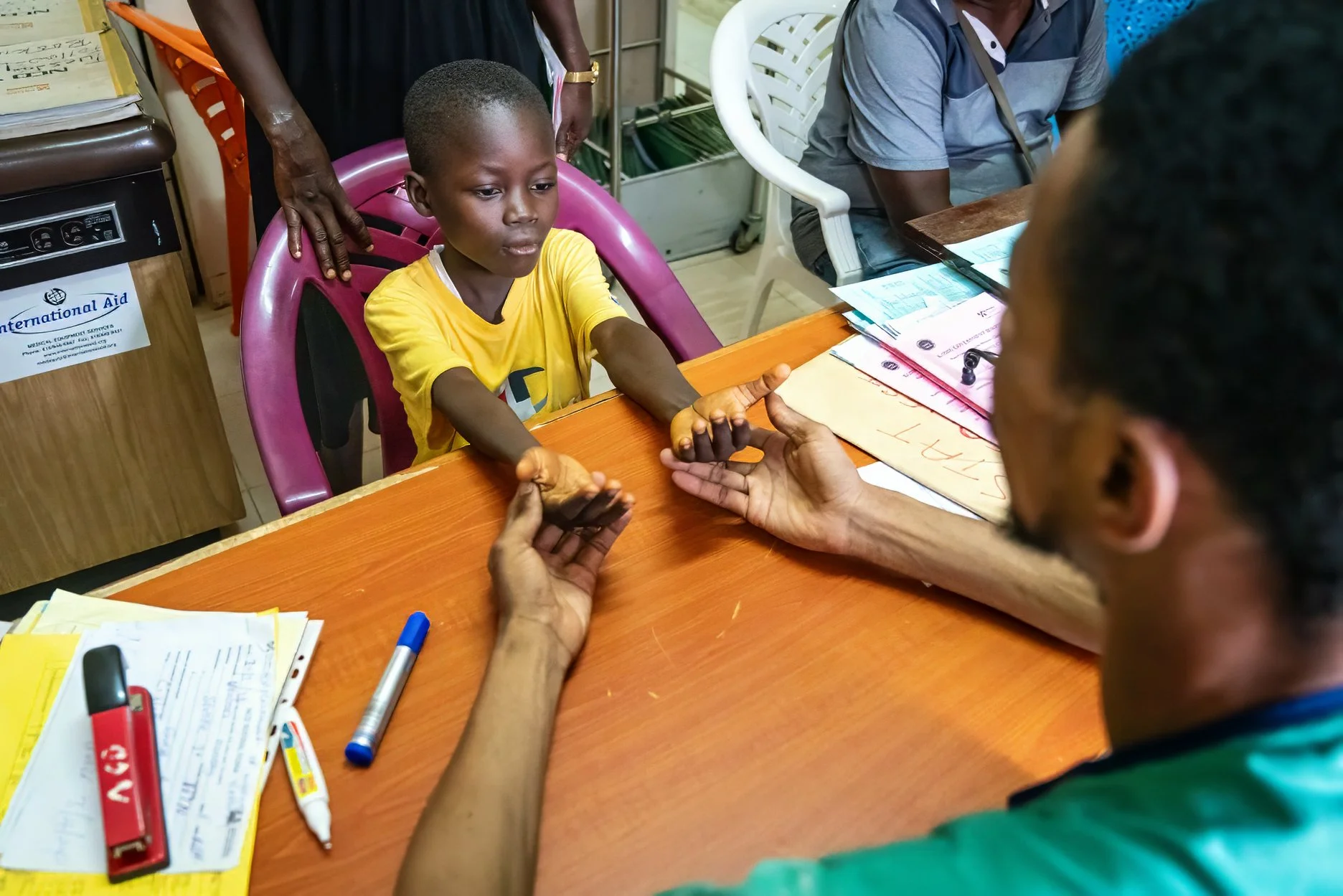Toolkit Offers Guidance for Monitoring and Evaluating PEN-Plus Care
Amza Musa, an eight-year-old living with sickle cell disease, attends an appointment with Emmanuel Fofanah, a clinical officer at the PEN-Plus clinic at Koidu Government Hospital in eastern Sierra Leone. (Photo: ©Michael Duff/World Health Organization)
The NCDI Poverty Network recently launched the PEN-Plus Monitoring and Evaluation Toolkit, a comprehensive resource designed to help clinicians, implementers, and planners deliver high-quality care to people living with severe noncommunicable diseases in resource-limited settings.
The toolkit consolidates the lessons that care providers have learned across years of implementing PEN-Plus—a proven, integrated care model—in 14 countries in sub-Saharan Africa and South Asia. The new resource complements the Network’s PEN-Plus Clinical Tools and Programmatic Standards, a handbook that defines PEN-Plus clinical care, including the model’s diagnostic, treatment, and patient support services.
“The PEN-Plus Monitoring and Evaluation Toolkit represents more than just an accumulation of best practices,” said Collin Whelley, the Network’s associate director of data systems and monitoring and evaluation. “It also creates a foundation for scaling successful approaches to caring for people with severe conditions. And the hands-on experience of these 14 countries provides a roadmap for other countries that are just starting PEN-Plus programs.”
In leading the development of the toolkit, Whelley wanted to reflect variations in the technical sophistication of healthcare facilities. A clinic just beginning to track patient outcomes with paper records, for example, has different needs than an established facility ready to integrate digital health systems with national platforms such as DHIS2.
The toolkit’s flexible approach allows implementers to start with essential data collection and gradually build more comprehensive monitoring systems as their capacity develops. The hundreds of data elements are organized into four progressive phases, enabling healthcare providers to begin with basic patient information and expand their monitoring capabilities over time.
“This staged approach acknowledges the reality that sustainable improvements in healthcare systems often happen incrementally rather than through comprehensive overhauls,” Whelley said.
The toolkit also tackles a persistent challenge in global health: connecting individual patient care with broader population health surveillance. The standardized forms and core indicators included in the toolkit aim to help countries track severe noncommunicable disease outcomes at national levels, building the evidence that health ministries need to develop more effective policies and secure appropriate resources.
“With this toolkit, we offer both immediate practical solutions and a pathway toward more systematic, evidence-based care delivery,” Whelley said. “We view this approach as essential to PEN-Plus implementation: prioritizing learning from experience, adapting to local contexts, and building sustainable systems that can improve outcomes for vulnerable patients over the long term.”

